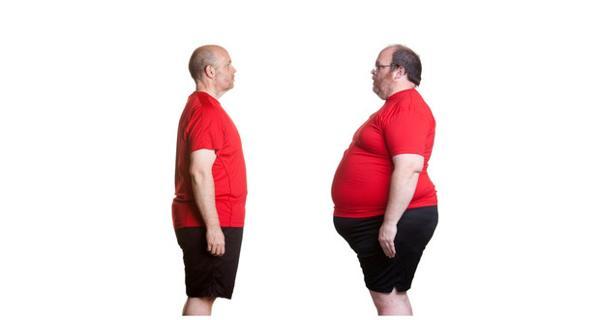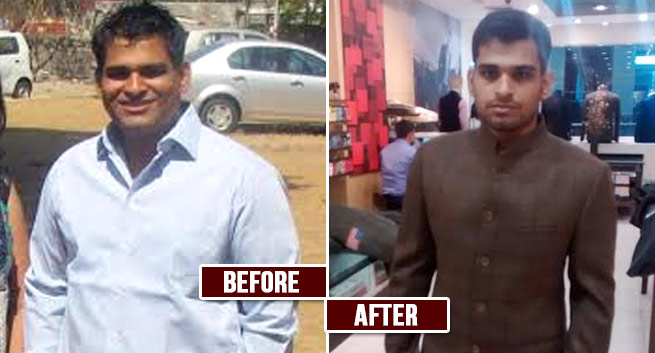Does bariatric surgery help you lose weight? (Expert Speak)

As the number of obese people continue to rise, more and more people are turning to bariatric surgery as a method of quick weight loss. The ones who can afford it get it done without thinking twice. But can it be a healthy alternative to diet and exercise? Dr Ramen Goel, a bariatric surgeon tells us more about the procedure.
It isn’t a shortcut to weight loss
People who believe that it is a short cut for weight loss are generally not the ones who need it. This is for people who have honestly tried to lose weight and tried various gyms, diets, have gone and have lost weight which keeps coming back.
Typically, bariatric surgery is advised for those patients who are at least 25 to 30 kilos overweight with BMI 32.5 or above. People with severe diabetes, hypertension or obstructive sleep apnoea associated with obesity are also likely candidates. Women who have irregular periods and are unable to conceive due to obesity can also opt for the surgery.
Bariatric surgery can be performed on all kinds of patients except if they have an unstable heart condition or untreated angina, or are psychologically unstable in which case they don’t understand/appreciate what is required after bariatric surgery and will not follow-up.
Role in treatment of Diabetes
Bariatric surgery plays an important role in treatment of Type 2 diabetes by changing the hormonal levels in the blood. The insulin that is produced in the body becomes sufficient.
Insulin resistance is increased and blood sugar is controlled. Over 80 % of the patients after the surgery will have normal blood sugar without medicines which is very significant because worldwide 60% of patients have uncontrolled blood sugar levels even with medicines.
Choosing a good surgeon is important
No surgery is a minor surgery. Hence before choosing a surgeon it is important to know if the surgeon can offer the entire range of surgeries. If a surgeon knows only one procedure, he will offer only that procedure which may or may not be suitable for you. Look for a surgeon who is a dedicated bariatric surgeon and has performed over 100 bariatric surgeries a year. The more experience a surgeon has in bariatric surgery, the less chances of complication rates. A dedicated bariatric surgeon will have time to spend with the patients after the surgery and will see you two to three times in the first year after surgery and once every year thereafter. Also make sure that the surgeon has a team of support staff with him – a dietician, a physician, a psychologist and counsellors. In case of any doubt talk to your other patients the surgeon has operated on and ask them about their personal experience.
Liposuction and Tummy Tucks are cosmetic procedures
They are done in a person whose weight is normal or near normal but has excess fat in particular parts of the body. Liposuction removes excess fat from thighs, back etc. Tummy tuck is done in the lower part of abdomen. The part of the abdomen that is in excess is tucked or removed and the skin is tightened so that you get a flat tummy. Other bariatric procedures are Sleeve Gastrectomy, Gastric Banding and Gastric Bypass.
Care before and after surgery
Many instructions are given before surgery to ensure that the procedure is safe for the patient. Tests to evaluate fitness before surgery which include heart, lung and kidney check-up, liver function, cholesterol, etc. are conducted. If any correctable problem or deficiency is diagnosed in these tests, then it should be attended to. Most of the people who are overweight by 25 to 30 kg also have a fatty liver. Such patients are put on a diet for one to two weeks before surgery primarily to reduce the fat content of the liver and not for weight loss. Patients are also taught breathing exercises.
After the surgery, patients are discharged either the same day or after 24 hrs. They should be on a liquid diet for about two weeks to ensure healing after which they are advised to be on a soft diet for a while. They are also prescribed supplements of protein, vitamin, calcium and iron to compensate for the deficiency of nutrients during the healing period.
Cost factor
The cost of surgery depends on where it is done and which procedure is being done. On an average the cost of bariatric surgery would be between two to three and a half lakh Indian rupees. At the moment it is not covered by insurance in India. Hence, majority of the patients pay from their pockets.
Lifestyle changes and weight loss after surgery
Bariatric surgery is just a tool. Making the right lifestyle changes is the most important decision that the patient needs to make. If patients eat good quality food and are physically active, they can lose anywhere between 70 to 95% of their extra weight. For e.g. if a person weighs 120 kg as against the ideal weight of 60 kg, he/she can expect to lose around 45 to 55 kg. The younger the patient, the better the weight loss is because young patients are more physically active.
Making the right food choices is paramount post-surgery. Since the quantity of food taken will be small, they need to eat protein-rich foods like pulses, milk products, eggs, fish, chicken, etc. Also, patients need to exercise, especially train with weights on a regular basis.
In some patients who have lost adequate weight after bariatric surgery the excess skin surrounding their pre-op fat becomes loose. This can be avoided by having enough proteins, water, vitamins, by exercising regularly and by getting body massages. After bariatric surgery less than 1% of the patients need plastic surgeries like tummy tuck or thigh lift.
Risks involved
The risk with bariatric surgery is primarily the same as with any other surgery. The risk is associated with anaesthesia, how the surgery is done and how the follow-up is done over a period of time. After the surgery, the risk is only of nutritional deficiency which can be completely avoided with patient compliance and regular follow-ups.
It is a misconception that the surgery restricts the absorption of nutrients causing malnutrition. Most of the bariatric surgeries work on the principle of reducing the portion size and not on malabsorption. There are very few procedures which work on principle of malabsorption and are not done in countries where there are more vegetarians. It is possible that some patients may have malnutrition which can be completely prevented by following post-operative guidelines and having more proteins, vitamins, calcium and iron in their diet.
Read more about causes, symptoms, diagnosis and treatment of diabetes.
For more articles on weight loss, visit our weight loss section. For daily free health tips, sign up for our newsletter.
-
Trying to lose weight with a gluten-free diet? Read this
-
Do the quick-fix weight loss products, treatments and services really work?
-
Benefits of power yoga
For
-
Why the paleo diet might just be your ticket to weight loss
-
Why weight loss isn’t just about counting calories
-
David: How Neil Nitin Mukesh and Vikram worked for their looks
- DON'T MISS
- Can I lose weight within 7 days if I go on a diet? (Diet query)
- How to lose weight in 1 month
- How stress affects your weight loss goals
- 7 fitness apps that will make weight loss fun!
- Real life weight loss story: From 106 kgs to 73 kgs, here’s how Subia Siddiqui lost 33kg in 6 months
- Battling the bulges with homeopathy
- In your 30s? Follow these tips to lose weight
- Expert opinion: The correct way to lose weight
- How this girl lost 23 kg in 8 months WITHOUT hitting the gym
- Stay fit and earn good karma with this personal fitness tracker




